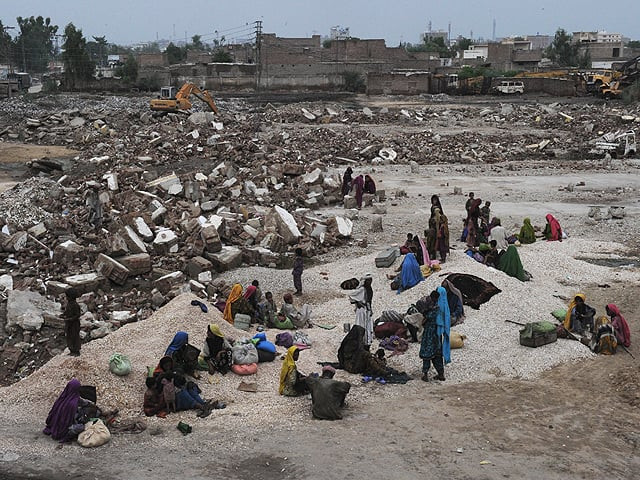Pakistan warned one year after worst-ever floods
Oxfam says 37,000 people still in camps in Sindh, 800,000 families nationwide without proper homes one year on.

The relief agency marked one year since the beginning of the 2010 disaster, when flooding inundated a third of Pakistan, by calling for more money to be spent on reconstruction, suitable housing and early-warning systems.
About 21 million people were affected by the worst floods in Pakistan and tens of thousands of people are still living in emergency camps.
"Pakistan needs to act now. Investing in measures today that reduce the impact of disasters is essential to save lives and safeguard development gains in the future," said Neva Khan, head of Oxfam in Pakistan.
"It will ensure schools built with aid funds are not washed away and that farmers can keep the crops they have toiled over. A year after Pakistan's mega floods it's time we learnt this lesson."
Releasing a new report entitled "Ready or Not", Oxfam said that 37,000 people were still in camps in Sindh, the worst-hit province, and 800,000 families nationwide were without proper homes one year on.
It warned that river embankments had not been rebuilt, leaving villages more open to flooding, and that two to five million people were likely to be affected by this year's monsoon floods.
"Villagers in areas that we work fear new flooding. Many are planting fewer crops than usual as they are worried that their harvests will be destroyed in fresh floods," Khan said.
"In some areas, where fresh flooding has already begun, families have started to dismantle their houses and move to higher ground as they are scared of losing everything again."
The Pakistan government's response to the 2010 floods, which began in the last week of July, was widely criticised, with much of the emergency relief aid coming from foreign donor nations.
Crops, roads, schools, electricity lines and bridges were all washed away in a country already suffering from militant attacks and political instability.
Corruption has also made donors wary of giving more money, and the Oxfam report said a UN appeal had a shortfall of $600 million to support "early recovery activities".
The meteorological department in Islamabad has predicted the 2011 monsoon will be below average overall, and the government has not reported any significant flooding yet this year.
"So far there has been no unusual impact on river flows, which remain normal," chief meteorologist Arif Mehmood told AFP. "Our forecast also suggests there will be no flooding in the next 15 days."
The strength of the annual downpour between July to September is vital to hundreds of millions of farmers across South Asia who rely on the rains to irrigate their crops for much of the rest of the year.



















COMMENTS
Comments are moderated and generally will be posted if they are on-topic and not abusive.
For more information, please see our Comments FAQ